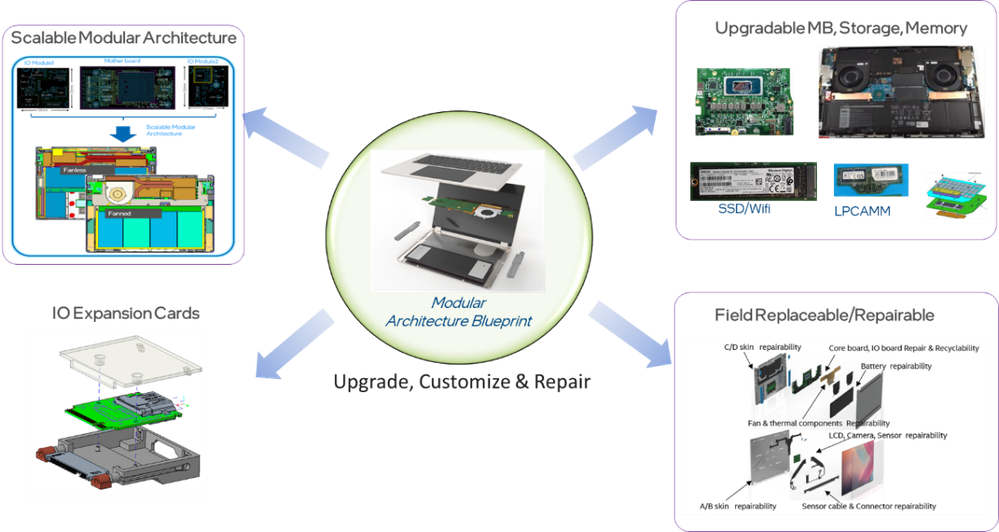Intel proposes new modular standards for laptops and mini PCs to improve repairability
Forward-looking: Outdated laptops often necessitate complete replacements since they typically only allow users to upgrade memory or storage. Intel aims to address this issue by urging manufacturers to embrace new modular design standards. Like Framework and MNT PCs, these standards would allow users to upgrade motherboards and other components without purchasing a new laptop. Intel recently outlined its ideas for allowing users to upgrade and replace individual laptop components. If widely adopted, the new standards could reduce costs and e-waste.The company's proposal describes standardized measurements for future laptop motherboards and I/O modules. Following a clear set of parameters might speed up the design process for new components.Additionally, users could upgrade and replace boards, USB-C ports, Thunderbolt ports, and other parts without completely replacing the laptop. An affordable tier for mainstream laptops would accommodate 14- and 16-inch devices, enabling single- or dual-fan upgrades to improve cooling.Intel also envisions strengthening modularity and standardization for mini-PCs. The company's diagram (below) depicts a 5L chassis with slide rails to facilitate easy swapping of the CPU, memory, GPU, and storage. The I/O ports and other parts would also enable easy repairs.Framework and MNT have provided modular laptops for years, but their initiatives remain niche. Framework's products allow customers to swap mainboards, ports, screens, keyboards, and many other components. The company also aims to provide upgradeable dedicated graphics for its 16-inch laptop, but the AMD Radeon RX 7700S is the only available option so far. // Related StoriesMeanwhile, MNT recently unveiled the successor to its Arm-based Reform laptop. Owners of the prior model can upgrade to a new SoC, swap other components, and 3D print a new chassis.The primary downside of Framework and MNT devices is that upgrades require users to remain within each company's hardware ecosystem. In contrast, Intel's proposal could potentially create an environment resembling desktop DIY PCs, allowing users to choose between parts from numerous vendors. However, whether the industry would agree upon a single modular laptop standard remains uncertain.Wide adoption wouldn't just lower upgrade costs and reduce e-waste; it would also deliver right-to-repair advocates a major victory. The increasingly popular movement aims to resist manufacturers' efforts to block repairs and maintenance by users or third-party hardware vendors. Right-to-repair advocacy usually centers on machines like smartphones and tractors, but laptop users have also begun complaining about recent models that no longer allow RAM and SSD upgrades.


